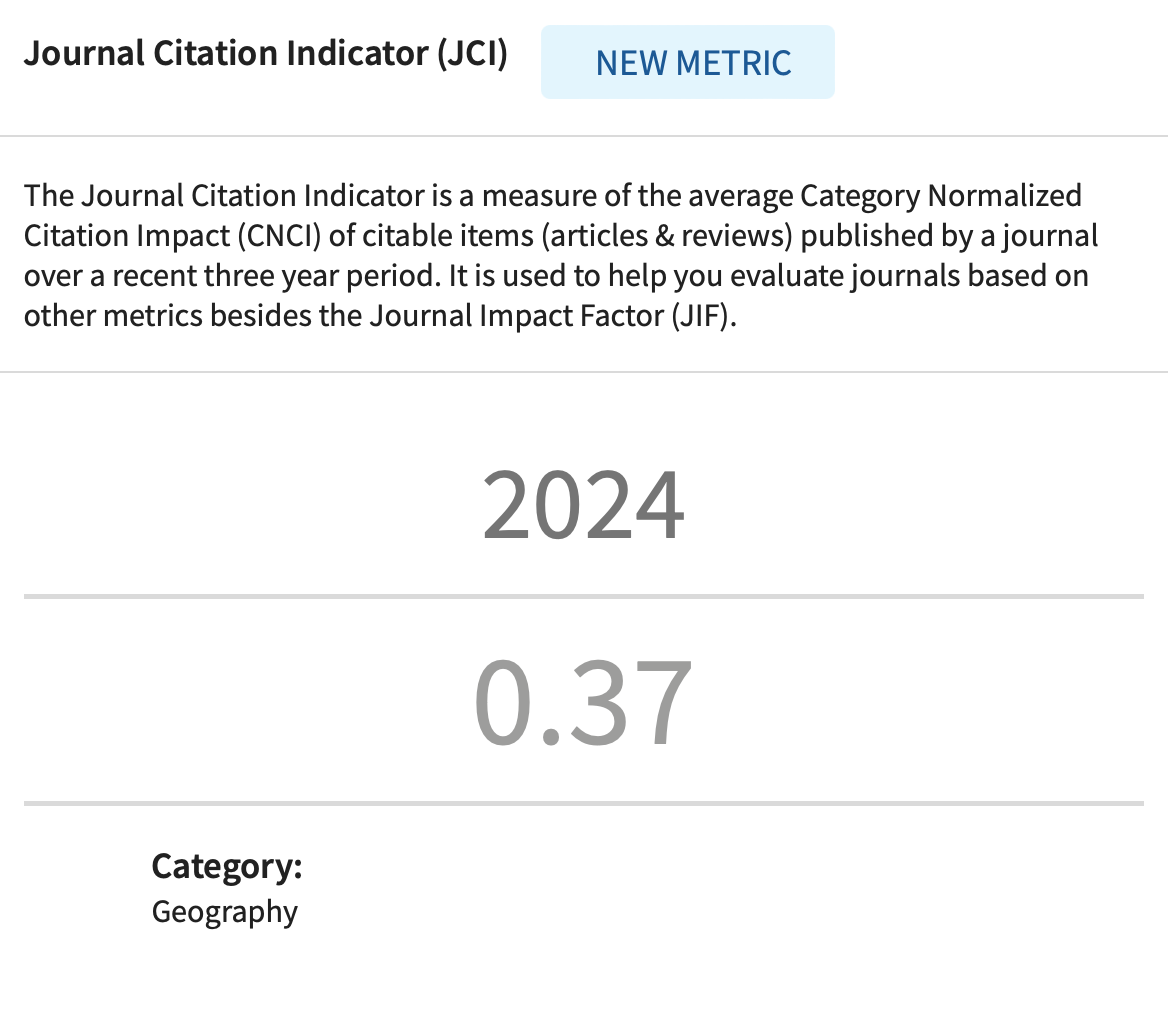EXPLORING TOURIST PERCEPTIONS AND EXPECTATIONS OF SPA TOURISM IN MILE CITY, CHINA: A GROUNDED THEORY APPROACH
DOI:
https://doi.org/10.2298/IJGI240704014QKeywords:
spa tourism, cultural authenticity, sustainability practices, tourist perceptions, service qualityAbstract
This qualitative study explores tourist perceptions and expectations of spa tourism in Mile City, China. The focus is on service quality, cultural authenticity, and sustainability practices. The research data were collected through semi-structured interviews with 18 participants to explore how these elements influence visitor satisfaction and decision-making. The findings highlight the critical role of cleanliness, therapist expertise, and ambiance in shaping overall satisfaction and revisit intentions. Visitors likewise place considerable importance on the incorporation of indigenous cultural components, including customary healing practices and ethnic decorations, which significantly enrich their spa experiences. Additionally, a distinct need for transparent and observable sustainability initiatives has arisen, even though existing practices remain constrained. By employing a grounded theory methodology, this research presents a novel conceptual framework to direct forthcoming investigations in spa tourism. This research offers vital insights for local spa enterprises and policymakers to enhance service offerings and align promotional strategies with modern traveler expectations, thereby promoting asustainable and culturally immersive spa tourism industry in Mile City.
Article metrics
References
Akmal, S., Zulfikri, A., Al-Hidayat, R., & Sasmito, P. (2023). Tourist Perception of the Quality of MSME Products and Services in Tourist Destinations. West Science Journal Economic and Entrepreneurship, 1(05), 175–181. https://doi.org/10.58812/wsee.v1i02.65
Baiocco, S., & Paniccia, P. M. (2023). Integrating the natural environment into tourism firms’ business model for sustainability. Environmental Science and Pollution Research, 30(30), 75015–75028. https://doi.org/10.1007/s11356-023-27730-7
Bishwokarma, D., Harper, J., & Nepal, S. (2023). Sustainable tourism in practice: synthesizing sustainability assessment of global tourism destinations. International Journal of Sustainable Development & World Ecology, 30(6), 671–684. https://doi.org/10.1080/13504509.2023.2183527
Blaikie, N. (2018). Confounding issues related to determining sample size in qualitative research. International Journal of Social Research Methodology, 21(5), 635–641. https://doi.org/10.1080/13645579.2018.1454644
Buys, T., Casteleijn, D., Heyns, T., & Untiedt, H. (2022). A Reflexive Lens on Preparing and Conducting Semi-structured Interviews with Academic Colleagues. Qualitative Health Research, 32(13), 2030–2039. https://doi.org/10.1177/10497323221130832
Carballo-Cruz, E., Maroto-Martos, J. C., & Pinos-Navarrete, A. (2024). Overview of touristic innovation in Spain spa tourism. International Journal of Spa and Wellness, 1–21. https://doi.org/10.1080/24721735.2024.2406173
de Lima, M. M., Mainardes, E. W., & Rodrigues, R. G. (2020). Tourist expectations and perception of service providers: a Brazilian perspective. Service Business, 14(1), 131–166. https://doi.org/10.1007/S11628-019-00406-4
Degen, W., Juan, T., Momo, W., & Meifeng, Z. (2022). Spatial evolution and influence mechanism of tourism in historic quarters from the postmodern consumption perspective: a case study of Pingjiang road and Shantang Street, Suzhou, China. Asia Pacific Journal of Tourism Research, 27(10), 1071–1094. https://doi.org/10.1080/10941665.2022.2150558
Denny, E., & Weckesser, A. (2022). How to do qualitative research? Qualitative research methods. Bjog: An International Journal of Obstetrics and Gynaecology, 129(7), Article 1166. https://doi.org/10.1111/1471-0528.17150
Elrod, C., Stanley, S., Cudney, E., & Fisher, C. (2015). Empirical Study Utilizing QFD to Develop an International Marketing Strategy. Sustainability, 7(8), 10756–10769. https://doi.org/10.3390/SU70810756
Frost, J. H., Ooi, N., & Van Dijk, P. A. (2022). ‘Is he going to be sleazy?’ Women’s experiences of emotional labour connected to sexual harassment in the spa tourism industry. Journal of Sustainable Tourism, 30(12), 2765–2784. https://doi.org/10.1080/09669582.2021.1942892
Gao, J., Ryan, C., Zhang, C., & Cui, J. (2022). The evolution of Chinese border tourism policies: An intergovernmental perspective on border tourism in Xishuangbanna. Asia Pacific Journal of Tourism Research, 27(2), 157–172. https://doi.org/10.1080/10941665.2021.2020313
Giritlioglu, I., Jones, E., & Avcikurt, C. (2014). Measuring food and beverage service quality in spa hotels: A case study in Balıkesir, Turkey. International Journal of Contemporary Hospitality Management, 26(2), 183–204. https://doi.org/10.1108/ijchm-03-2012-0049
Han, J. H., & Bae, S. Y. (2022). Roles of authenticity and nostalgia in cultural heritage tourists’ travel experience sharing behavior on social media. Asia Pacific Journal of Tourism Research, 27(4), 411–427. https://doi.org/10.1080/10941665.2022.2075776
Jigyasu, N. (2022). Authentic versus staged identity–problematizing tourism interventions for authenticity and integrity in historic cities. Journal of Cultural Heritage Management and Sustainable Development. Advance online publication. https://doi.org/10.1108/jchmsd-07-2022-0116
Kallio, H., Pietilä, A. M., Johnson, M., & Kangasniemi, M. (2016). Systematic methodological review: developing a framework for a qualitative semi‐structured interview guide. Journal of Advanced Nursing, 72(12), 2954–2965. https://doi.org/10.1111/jan.13031
Kharkova, O., Kuznetsov, V., Kholmatova, K., & Grjibovski, A. (2022). Grounded theory as a qualitative research method in medicine. Marine Medicine, 8(4), 104–111. https://doi.org/10.22328/2413-5747-2022-8-4-104-111
Knott, E., Rao, A. H., Summers, K., & Teeger, C. (2022). Interviews in the social sciences. Nature Reviews Methods Primers, 2(1), Article 73. https://doi.org/10.1038/s43586-022-00150-6
Lakićević, M., Pantović, D., & Fedajev, A. (2023). Investigating Factors of Customer Loyalty Formation for Wellness Spa. Management: Journal of Sustainable Business and Management Solutions in Emerging Economies, 29(1), 53–62. https://doi.org/10.7595/management.fon.2021.0031
Lee, G., Lin, X., Choe, Y., & Li, W. (2021). In the eyes of the beholder: The effect of the perceived authenticity of Sanfang Qixiang in Fuzhou, China, among locals and domestic tourists. Sustainability, 13(22), Article 12353. https://doi.org/10.3390/SU132212353
Li, X., & Wang, C. (2023). Understanding the relationship between tourists’ perceptions of the authenticity of traditional village cultural landscapes and behavioural intentions, mediated by memorable tourism experiences and place attachment. Asia Pacific Journal of Tourism Research, 28(3), 254–273. https://doi.org/10.1080/10941665.2023.2217959
Liu, J., Li, X., Zhang, L., Lu, Q., & Su, X. (2023). Authenticity, psychological ownership and tourist commitment in heritage tourism: the moderating effect of cultural intelligence. Current Issues in Tourism, 26(24), 3955–3972. https://doi.org/10.1080/13683500.2022.2153650
López, M. (2023). The effect of sampling mode on response rate and bias in elite surveys. Quality & Quantity, 57(2), 1303–1319. https://doi.org/10.1007/s11135-022-01406-9
Madanaguli, A., Dhir, A., Joseph, R. P., Albishri, N. A., & Srivastava, S. (2023). Environmental sustainability practices and strategies in the rural tourism and hospitality sector: A systematic literature review and suggestions for future research. Scandinavian Journal of Hospitality and Tourism, 23(1), 1–28. https://doi.org/10.1080/15022250.2023.2174179
Mijajlović, M., Puška, A., Stević, Ž., Marinković, D., Doljanica, D., Jovanović, S. V., Stojanović, I., & Beširović, J. (2020). Determining the Competitiveness of Spa-Centers in Order to Achieve Sustainability Using a Fuzzy Multi-Criteria Decision-Making Model. Sustainability, 12(20), Article 8584. https://doi.org/10.3390/su12208584
Mile Municipal People's Government Office. (2022). Mile Overview - Introduction to Mile City. https://www.hhml.gov.cn/info/5141/58041.htm
Nagendrakumar, N., Alwis, K. N. N., Eshani, U. A. K., & Kaushalya, S. B. U. (2022). The Impact of Sustainability Practices on the Going Concern of the Travel and Tourism Industry: Evidence from Developed and Developing Countries. Sustainability, 14(24), Article 17046. https://doi.org/10.3390/su142417046
Ning, W. (2017). Rethinking Authenticity In Tourism Experience. In D. J. Timothy (Ed.), The Political Nature of Cultural Heritage and Tourism (pp. 469–490). Routledge. https://doi.org/10.4324/9781315237749
Parasuraman, A., Zeithaml, V. A., & Berry, L. L. (1988). SERVQUAL: A Multiple-Item Scale for Measuring Consumer Perceptions of Service Quality. Journal of Retailing, 64(1), 12–40. https://www.researchgate.net/publication/200827786_SERVQUAL_A_Multiple-item_Scale_for_Measuring_Consumer_Perceptions_of_Service_Quality
Pitakaso, R., Srichok, T., Khonjun, S., Gonwirat, S., Nanthasamroeng, N., & Boonmee, C. (2024). Multi-objective sustainability tourist trip design: An innovative approach for balancing tourists' preferences with key sustainability considerations. Journal of Cleaner Production, 449, Article 141486. https://doi.org/10.1016/j.jclepro.2024.141486
Poort, M. E., Persson-Fischier, U., Martinsson-Wallin, H., Elf Donaldson, E., & Schaub, M. (2021). “Authenticity” as a Pathway to Sustainable Cultural Tourism? The Cases of Gotland and Rapa Nui. Sustainability, 13(11), Article 6302. https://doi.org/10.3390/SU13116302
Rêgo, A. d. S., Radovanovic, C. A. T., Haddad, M. d. C. F. L., Santos, J. L. G. d., Carreira, L., Salci, M. A., Andrade, L. d., & Büscher, A. (2023). Use of grounded theory in the extraction, coding and analysis of data in literature meta-analyses. Texto & Contexto-Enfermagem, 32, Article e20210445. https://doi.org/10.1590/1980-265x-tce-2021-0445en
Roller, M. R., & Lavrakas, P. J. (2015). Applied qualitative research design: A total quality framework approach. Guilford Publications.
Rowlands, I. H. (1999). Corporate Potential [Review of Cannibals with Forks: The Triple Bottom Line of 21st Century Business, by J. Elkington]. Alternatives Journal, 25(4), 42–43. http://www.jstor.org/stable/45032233
Sahabuddin, M., Alam, M. S., & Nekmahmud, M. (2024). How do perceived and environmental values influence tourist satisfaction, loyalty, and environmental awareness? Environment, Development and Sustainability. https://doi.org/10.1007/s10668-024-05094-3
Seidel, S., Vrenegoor, F., & Cavagnaro, E. (2021). Sustainable behaviour in tourism and hospitality. Scandinavian Journal of Hospitality and Tourism, 21(5), 471–474. https://doi.org/10.1080/15022250.2021.1984986
Smiley, S. (2015). Field Recording or Field Observation?: Audio Meets Method in Qualitative Research. The Qualitative Report, 20(11), 1812–1822. https://doi.org/10.46743/2160-3715/2015.2380
Smith, M., & Puczkó, L. (2015). More than a special interest: Defining and determining the demand for health tourism. Tourism Recreation Research, 40(2), 205–219. https://doi.org/10.1080/02508281.2015.1045364
Sosa-Díaz, M.-J., & Valverde-Berrocoso, J. (2022). Grounded Theory as a Research Methodology in Educational Technology. International Journal of Qualitative Methods, 21. https://doi.org/10.1177/1609406922113322
Stepchenkova, S., Dai, X., Guerrero-Rodriguez, R., Belyaeva, V., Kim, M., & Park, H. (2024). The role of cultural and personal values in authentication of tourist attractions: A quantitative investigation. International Journal of Tourism Research, 26(4), Article e2686. https://doi.org/10.1002/jtr.2686
Suardana, I. W., Gelgel, I. P., & Watra, I. W. (2022). Traditional villages empowerment in local wisdom preservation towards cultural tourism development. International Journal of Social Sciences, 5(1), 74–81. https://doi.org/10.21744/ijss.v5n1.1876
Sun, J., Xiong, Y., Li, Y., Yang, Q., Chen, Y., Jiang, M., Li, Y., Li, H., Bi, Z., & Huang, X. (2020). Medicinal dietary plants of the Yi in Mile, Yunnan, China. Journal of Ethnobiology and Ethnomedicine, 16, Article 48. https://doi.org/10.1186/s13002-020-00400-5
Sztubecka, M., Maciejko, A., & Skiba, M. (2022). The Landscape of the Spa Parks Creation Through Components Influencing Environmental Perception Using Multi-Criteria Analysis. Sustainability, 14(9), Article 5657. https://doi.org/10.3390/su14095657
Thanikkad, J., & Kumar, S. (2022). The perceptions turned chaff at the destination–experience effect on cultural tourists' satisfaction. International Journal of Leisure and Tourism Marketing, 7(3), 215–234. https://doi.org/10.1504/ijltm.2022.122453
Tiwari, V., & Thakur, S. (2021). Environment sustainability through sustainability innovations. Environment, Development and Sustainability, 23(5), 6941–6965. https://doi.org/10.1007/S10668-020-00899-4
Torres-Pruñonosa, J., Raya, J. M., Crespo-Sogas, P., & Mur-Gimeno, E. (2022). The economic and social value of spa tourism: The case of balneotherapy in Maresme, Spain. Plos One, 17(1), Article e0262428. https://doi.org/10.1371/journal.pone.0262428
Turner, D. W. (2010). Qualitative interview design: A practical guide for novice investigators. The Qualitative Report, 15(3), Article 754–760. https://doi.org/10.46743/2160-3715/2010.1178
Urcia, I. A. (2021). Comparisons of Adaptations in Grounded Theory and Phenomenology: Selecting the Specific Qualitative Research Methodology. International Journal of Qualitative Methods, 20. https://doi.org/10.1177/16094069211045474
Voigt, C., Brown, G., & Howat, G. (2011). Wellness tourists: in search of transformation. Tourism Review, 66(1/2), 16–30. https://doi.org/10.1108/16605371111127206
Zhang, C., Weng, S., & Bao, J. (2020). The changes in the geographical patterns of China’s tourism in 1978–2018: Characteristics and underlying factors. Journal of Geographical Sciences, 30, 487–507. https://doi.org/10.1007/S11442-020-1739-2
Zhang, S. (2022). Research of Tourist Perception Based on Big Web Text Mining. Proceedings of the 7th
International Conference on Intelligent Information Processing, Article 47. https://doi.org/10.1145/3570236.3570284
Zuo, Y., Lan, T., Liu, S., & Zeng, H. (2024). The Post-Effects of the Authenticity of Rural Intangible Cultural Heritage and Tourists’ Engagement. Behavioral Sciences, 14(4), Article 302. https://doi.org/10.3390/bs14040302
Downloads
Published
How to Cite
Issue
Section
License
Copyright (c) 2025 Journal of the Geographical Institute “Jovan Cvijić” SASA

This work is licensed under a Creative Commons Attribution 4.0 International License.











